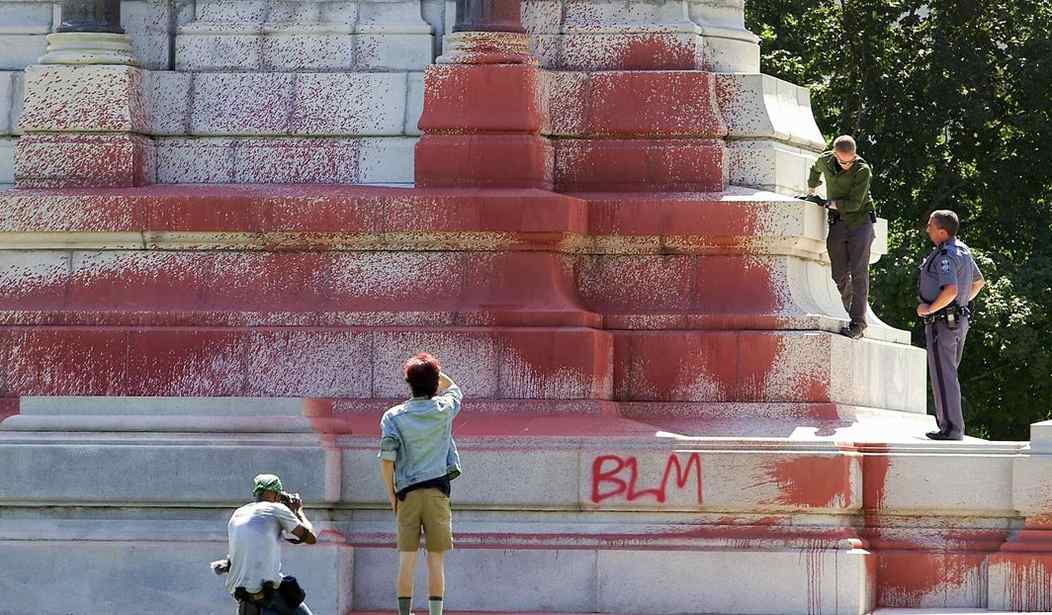Loving African-American lives as much as we love the lives of others clearly includes addressing systemic racism. And it also means addressing the way America treats black men versus African-American women: African-American men are stopped by, shot by, and killed by police more than 20 times as frequently as African-American women. And the Bureau of Justice Statistics reports that African-American men are 25 times more likely to be imprisoned.
If disproportionately killing and imprisoning African-Americans is racist, then disproportionately killing and imprisoning males is sexist. But the real sexism is caring only about the systemic racism, and turning a blind eye to the other half of systemic: the sexism. The other half of “African-American male” is male.
Caring about Black boys and men quickly reveals there is no community that has been harder hit by dad-deprivation than the African-American community. It wasn’t always this way. Between 1880 and 1960, a majority of African-American families consisted of married fathers and mothers. But in the early sixties, nuclear families dramatically decreased. Inner city poverty and crime dramatically increased.
In 1965 sociologist Daniel Moynihan, who served under Presidents Nixon, Kennedy, and Johnson, led an investigation of inner-city life that concluded that the main predictor of growing up poor was not race per se but being born to parents who are not married. Why? A predictable outcome of no marriage was little or no father involvement.
While the Moynihan Report identified the quarter of black children born outside marriage as a crisis in 1965, the government’s counterproductive solution—giving moms money for not being married to dads—has contributed to almost a tripling of unmarried births among blacks (from 25 to 72 percent) and an expansion of the problem to white and Hispanic communities. The percentage of white children born outside marriage is now 36 percent—a nearly twelvefold increase from the 3.1 percent that it was in 1965.
Recommended
Single moms have done an extraordinary job raising children even as they often raise money—and millions of their children have turned out well. But this rise of father absence often leaves single moms overwhelmed; dads depressed with neither purpose nor love; children more likely to be damaged in over 50 developmental areas; and pockets of fatherlessness that become pockets of crime.
As we’ve gone from the Era of Father Knows Best to Father Knows Less, Father’s Day is a perfect time to rediscover the value of dad. Fathers do not know less, they know differently. For example, Dad-style parenting is more likely to feature bonding by roughhousing, and stopping the roughhousing when rough gets too rough. And as dads engage the children in games, if his children don’t try hard enough or smart enough, he’ll teach them to be winners by letting them lose. The results are counterintuitive: Dad-enriched children demonstrate greater empathy, social skills, and postponed gratification.
Both Dad-deprived boys and girls suffer in fifty-plus areas of development, but a Dad-deprived boy is likely to suffer more intensely—by emotional withdrawal, depression, obesity, ADHD, imprisonment, and addiction to video games, porn, alcohol, drugs, and death by opioids.
Why this gap between dad-deprived boys and girls? For starters, a Dad-deprived girl at least has a mom as a same sex role model. Dad-deprivation creates in many boys a “Dad void”—a boy not knowing who he is as a man, frequently having less of the discipline he needs to fulfill his dreams.
The result? A multi-faceted boy crisis that resides primarily where dads do not reside. Today, boys are 66% more likely than girls to be living at home between ages 25 and 31. They are falling behind girls in almost every academic subject — especially in reading and writing, the biggest predictors of success. Forty-three percent more boys than girls are dropping out of high school, and even before COVID, more than 20% of these boys were unemployed in their early 20s — six times the national pre-COVID average.
Today our country is threatened less by the destruction of the nation from the outside than by the destruction of the family from the inside. Dad-deprived boys hurt. And it is these boys who hurt who hurt us. Hungry for role models, these boys are sitting ducks for terrorist recruiters and gangs who promise them a ready-made “family.” And when they become drug dealers, mass shooters, ISIS recruits, or fill our prisons, our government spends about a trillion dollars per year to clean up the results of their trauma. That destruction of the family from the inside becomes a threat to the nation from the outside.
Involving a boy’s dad is not always possible. If we are to expect these boys to avoid destructive role models and the school-to-prison pipeline, we must create scholarships to inspire great male teachers, mentors and coaches.
In every generation’s war, when boys feel needed and called upon to serve, they give of their lives. If we are to be genuine in our caring about Black lives, we will be as outspoken at telling boys of every race that we will view them as heroes not only when they protect us by killing and being killed in wars away from home, but also when they become great fathers by loving and being loved in the peace they help to create at home.
Warren Farrell, Ph.D.* is author ofThe Boy Crisis(with John Gray). He has been chosen by the Financial Times of London as one of the world’s top 100 thought leaders. Dr. Farrell has been a pioneer in both the women’s movement (elected three times to the Board of N.O.W. in NYC) and the men’s movements. His books are published in over 50 countries, and in 19 languages. They includeThe New York Times best-seller, Why Men Are the Way They Are.

























Join the conversation as a VIP Member